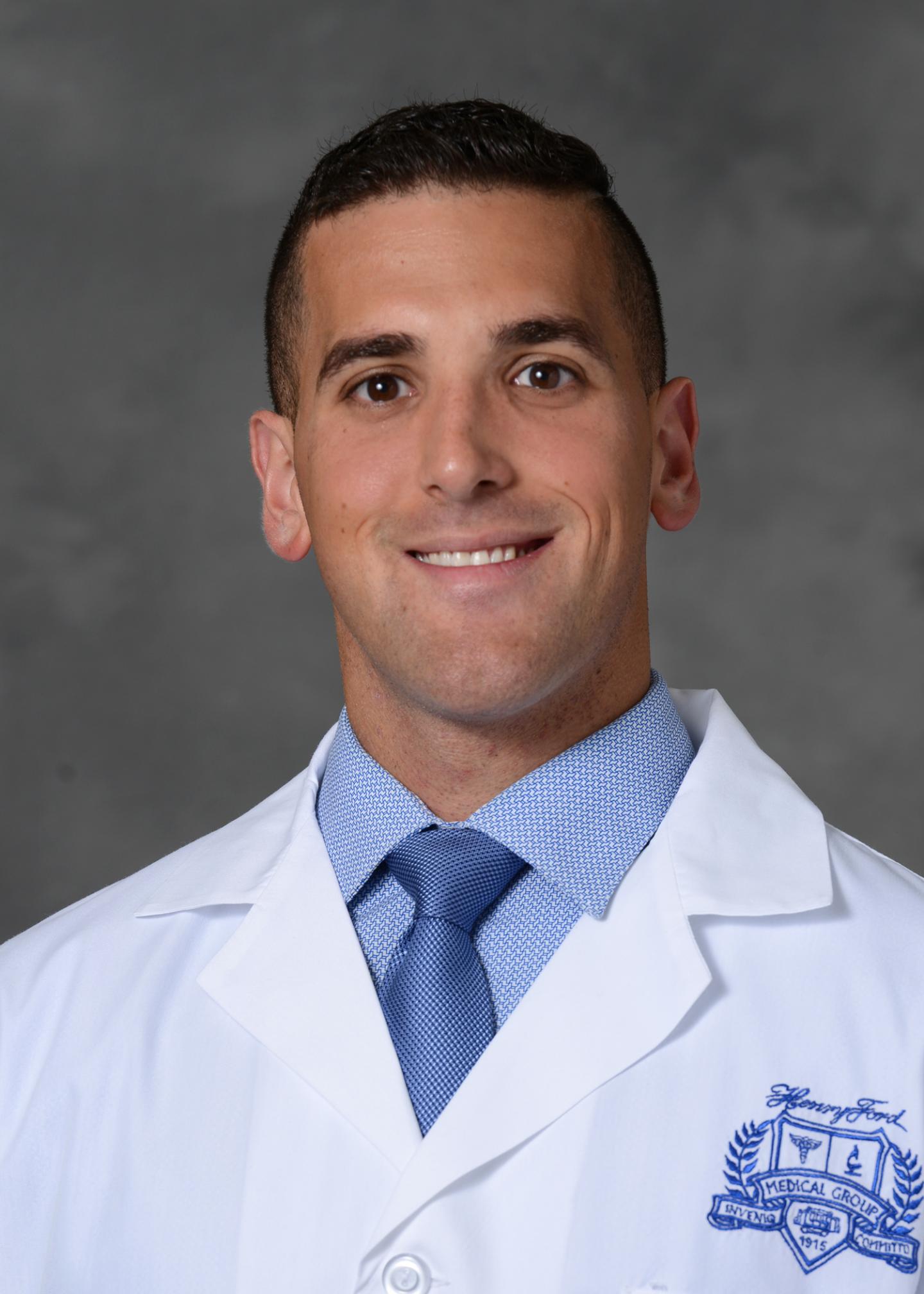Henry Ford Health System study finds that a non-opioid approach is just as effective

Credit: Henry Ford Health System
DETROIT (April 26, 2021) – A new study by Henry Ford Health System published in Arthroscopy: The Journal of Arthroscopic and Related Surgery may signal a first step toward eliminating the use of opioids to relieve pain after knee surgery.
A novel multimodal pain management protocol developed at Henry Ford can bring about immediate pain relief for knee injury patients without using powerful opioids like morphine, codeine, and oxycodone.
“Orthopedic surgeons can now perform meniscal knee surgery without the need for prescribing opioids whatsoever,” said Toufic Jildeh, M.D., chief resident at Henry Ford’s Department of Orthopaedic Surgery and the study’s lead researcher. “We believe this non-opioid approach can be replicated for other types of orthopedic surgeries.”
In what has been labeled as a serious national crisis by the U.S. Department of Health, nearly 10 million Americans misused prescription pain relievers in 2019 and more than 50 thousand people died as a result of opioid-related overdoses. Dr. Jildeh points to the study’s findings as an important first step in the effort to reduce and eliminate the use of addictive opioids to manage pain following other types of surgeries as well.
“When patients learned they can undergo surgery without the need to take opioids to manage their pain, they were excited,” said Dr. Jildeh.
Dr. Jildeh said the reliance on prescribing non-opioids for severe pain relief is part of the health system’s broader initiative launched in 2016 to reduce the number of opioid pills and patches. In 2019, the State of Michigan enacted new laws regulating the prescribing and dispensing of controlled substances including opioid painkillers. From 1999 to 2016, Michigan saw a 17% increase in fatal prescription drug and opioid overdoses.
Studies have shown that patients can become addicted to their opioid pain control medications after various types of surgery including meniscus knee surgery. “Our non-opioid approach is our response to advancing better practices for pain management for our patients,” Dr. Jildeh said.
From the study’s 61 patients, 30 received opioids for pain control and 31 received a non-opioid regimen such as anti-inflammatories, acetaminophen and muscle relaxers. Researchers reported pain scores from the non-opioid group were equivalent to those of the opioid group and there were no significant differences in side effects between the two groups.
“Patients were given the option to ask for opioids if they felt as if their pain was not in control, and we reported that none of the patients in our nonopioid cohort asked for opioids,” said Dr. Jildeh.
The non-opioid approach has become the standard of care for managing pain after meniscus surgery for many surgeons at Henry Ford.
###
NEWS MEDIA ONLY may contact: Sal Giacona / [email protected] / 313-421-9108
About Henry Ford Health System
Founded in 1915 by Henry Ford himself, Henry Ford Health System is a non-profit, integrated health system committed to improving people’s lives through excellence in the science and art of healthcare and healing. Henry Ford Health System includes Henry Ford Medical Group, with more than 1,900 physicians and researchers practicing in more than 50 specialties at locations throughout Southeast and Central Michigan. Acute care hospitals include Henry Ford Hospital in Detroit, MI and Henry Ford Allegiance Health in Jackson, MI – both Magnet® hospitals; Henry Ford Macomb Hospital; Henry Ford West Bloomfield Hospital; and Henry Ford Wyandotte Hospital.
The largest of these is Henry Ford Hospital in Detroit, a quaternary care research and teaching hospital and Level 1 Trauma Center recognized for clinical excellence in cardiology, cardiovascular surgery, neurology, neurosurgery, and multi-organ transplants. The health system also provides comprehensive, best-in-class care for cancer at the Brigitte Harris Cancer Pavilion, and orthopedics and sports medicine at the William Clay Ford Center for Athletic Medicine – both in Detroit.
As one of the nation’s leading academic medical centers, Henry Ford Health System annually trains more than 3,000 medical students, residents, and fellows in more than 50 accredited programs, and has trained nearly 40% of the state’s physicians. Our dedication to education and research is supported by nearly $100 million in annual grants from the National Institutes of Health and other public and private foundations.
Henry Ford’s not-for-profit health plan, Health Alliance Plan (HAP), provides health coverage for more than 540,000 people.
Henry Ford Health System employs more than 33,000 people, including more than 1,600 physicians, more than 6,600 nurses and 5,000 allied health professionals.
Media Contact
Sal Giacona
[email protected]
Original Source
https:/
Related Journal Article
http://dx.




